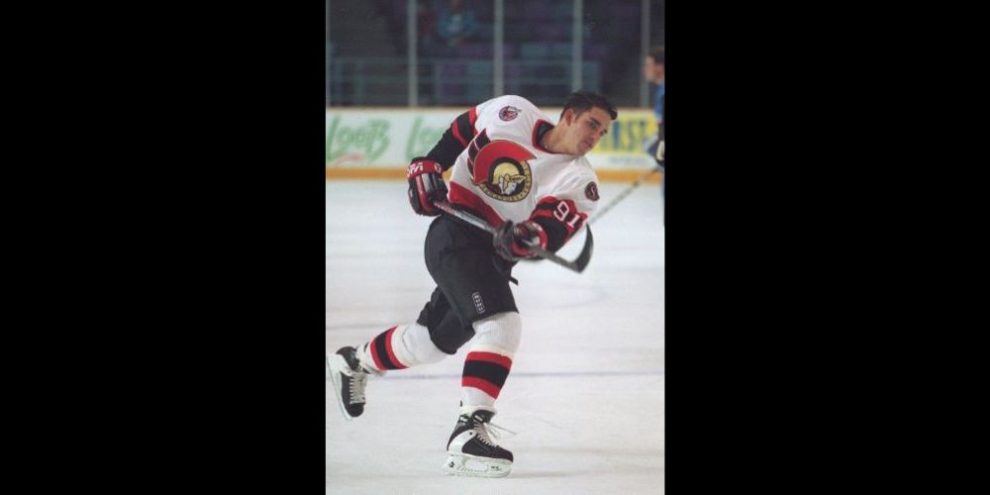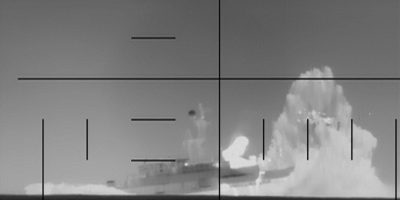
By Joshua Clipperton
Alexandre Daigle sat down to relive his life in the spotlight.
The videos and images that flashed before him included times both good and bad.
The 50 goals he scored in youth hockey, getting selected first overall at the 1993 NHL draft by the Ottawa Senators, being tabbed as the game's next superstar, the multi-million dollar contract that shook the sport.
Laid out in front of Daigle were also his struggles on the ice, the suffocating pressure faced he alone, the colourful quotes, the rumours about his personal life.
And of course, one infamous photo shoot.
"A kid that has no clue what he's getting into," Daigle said in an interview this week when asked about the smiling youngster on screen. "With an open heart and very naive."
His time under the microscope is told in "Chosen One: Alexandre Daigle" — a story of unattainable expectations, bitter disappointments and later, a measure of redemption — which premiered Friday.
The documentary from Amazon Prime Video and NHL Productions follows a hockey-loving kid from Laval, Que., who reached god-like status before playing a single professional shift. And the teenager totally unprepared for what came next.
"To relive it, it was kind of tough," Daigle said. "I had been thinking everything was negative. But I was an 18-, 19-year-old. I'm 48 now.
"I cut myself a lot of slack."
Daigle largely fell out of love with the game after scoring those 50 goals the season before making his Quebec Major Junior Hockey League debut.
"Burnout-type mode," he said. "Out of the blue ... I'd start crying after the game."
It was a time before sports psychologists and other professionals were readily available to players. Mental health was a taboo subject. Daigle was told, especially with the NHL draft looming, to "suck it up."
"My brain was going in different directions," he said.
Despite the internal turmoil, everything appeared fine. Daigle was the slam-dunk No. 1 pick by Ottawa and signed a five-year contract worth in the neighbourhood of $12.5-million — paid out in Canadian rather than U.S. currency — that infuriated other teams.
To this day, he's credited for the cap on rookie salaries.
Daigle also put his foot in his mouth at times, famously declaring "no one remembers No. 2" at the draft. The second selection was future Hall of Fame defenceman Chris Pronger.
"It's funny if people understand my sense of humour," said the former centre. "Off the cuff, but for 30 years people talk to me about those comments."
"Not a bad line, actually," Daigle added with a laugh.
He also made the infamous gaffe of wearing a nurse's dress at a hockey card photo shoot before his rookie season.
"I had nobody telling me, 'Maybe it's not a good idea,'" he said. "Nobody to approve the pictures."
Wearing the same Jofa helmet as Mario Lemieux and sporting the flashy No. 91 were other early missteps.
"Put a big target," he said.
Daigle's job was to be the face of the Senators, the NHL's worst team, entering the franchise's second year of existence.
Things didn't go well on the ice, prompting questions about his heart and desire, but like the internal fire he lost as a teen, there was more to it.
"My big problem was resetting goals every year," Daigle said. "The other thing was really fitting in the NHL."
He doesn't blame the Senators. Everyone and everything was new. But it all fell to Daigle. In both official languages.
"I had to do the French and English," he said. "With no — zero — training and direction ... beautiful."
Viewed as a draft bust 4 1/2 seasons into his career, Daigle was dealt to the Flyers in 1998. There he saw a superstar in Eric Lindros with the drive he had lost.
"If you could trade (for) that ... 100 per cent," Daigle said.
Things worked out for a while in Philadelphia, but his play and personal life — including a summer in Los Angeles and rumoured links to actress Pamela Anderson — would see him traded to Tampa Bay before a move to the New York Rangers.
Daigle retired at 25, only to return two years later with Pittsburgh. He then caught on with Minnesota and coach Jacques Lemaire, who he credits with remaking him into a two-way player.
"Looks tough, he's got a leather face," said the fun-loving Daigle. "But it's the opposite. (Jacques) tells you how should play. And if you don't, there's repercussions."
Daigle finished with 327 points in 616 NHL games before spending five more seasons in Switzerland.
He hopes the documentary explains his version of his story.
"I meant well," Daigle said. "Expectation versus reality is sometimes a bit different."
Initially unsure if he wanted to go down this road, the process was a "liberating" experience three decades on.
"It is what it is," Daigle said. "I did those things, there's a reason why.
"Done. Move on."
That he has. With a smile.
This report by The Canadian Press was first published Jan. 26, 2024
Banner image via The Canadian Press





